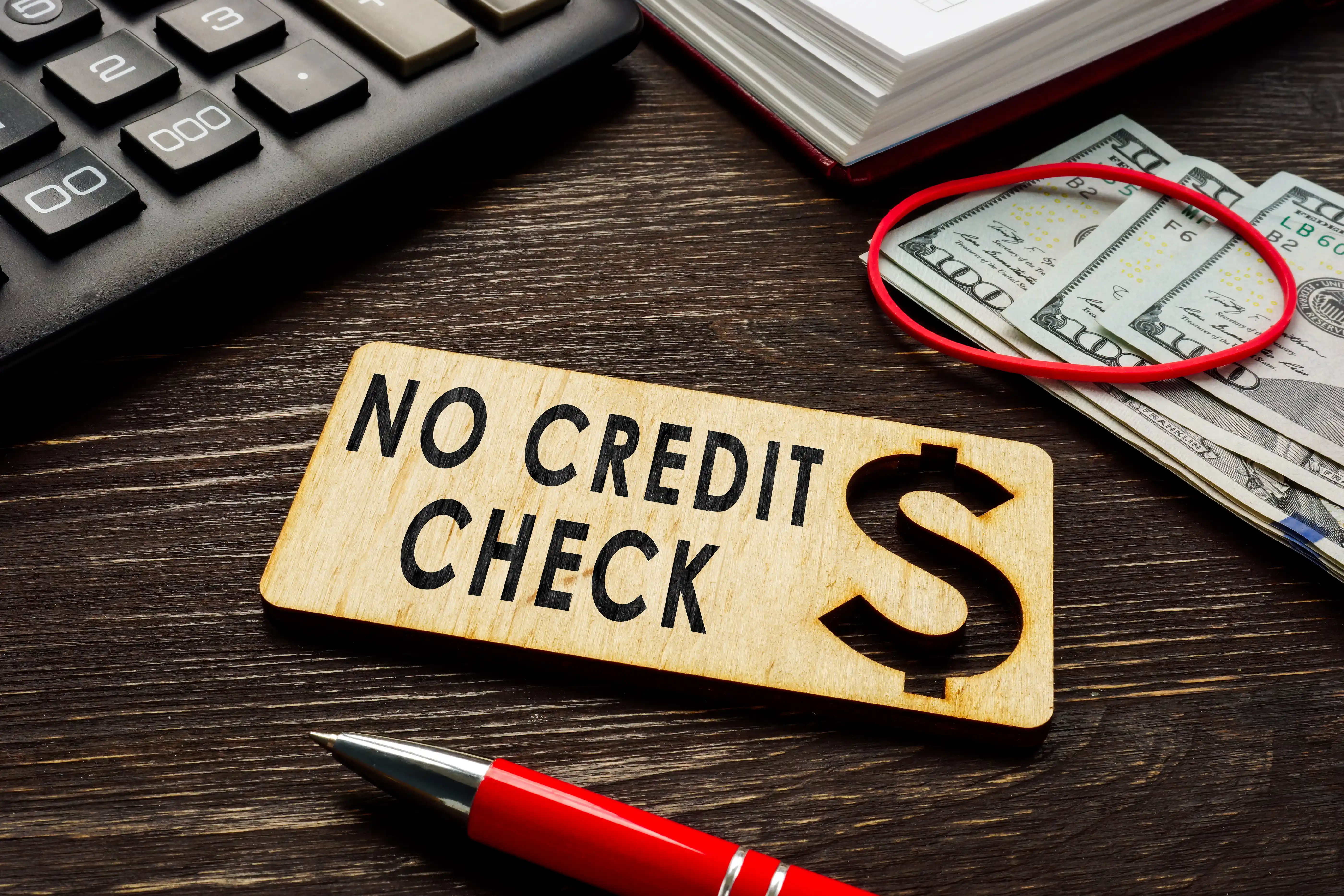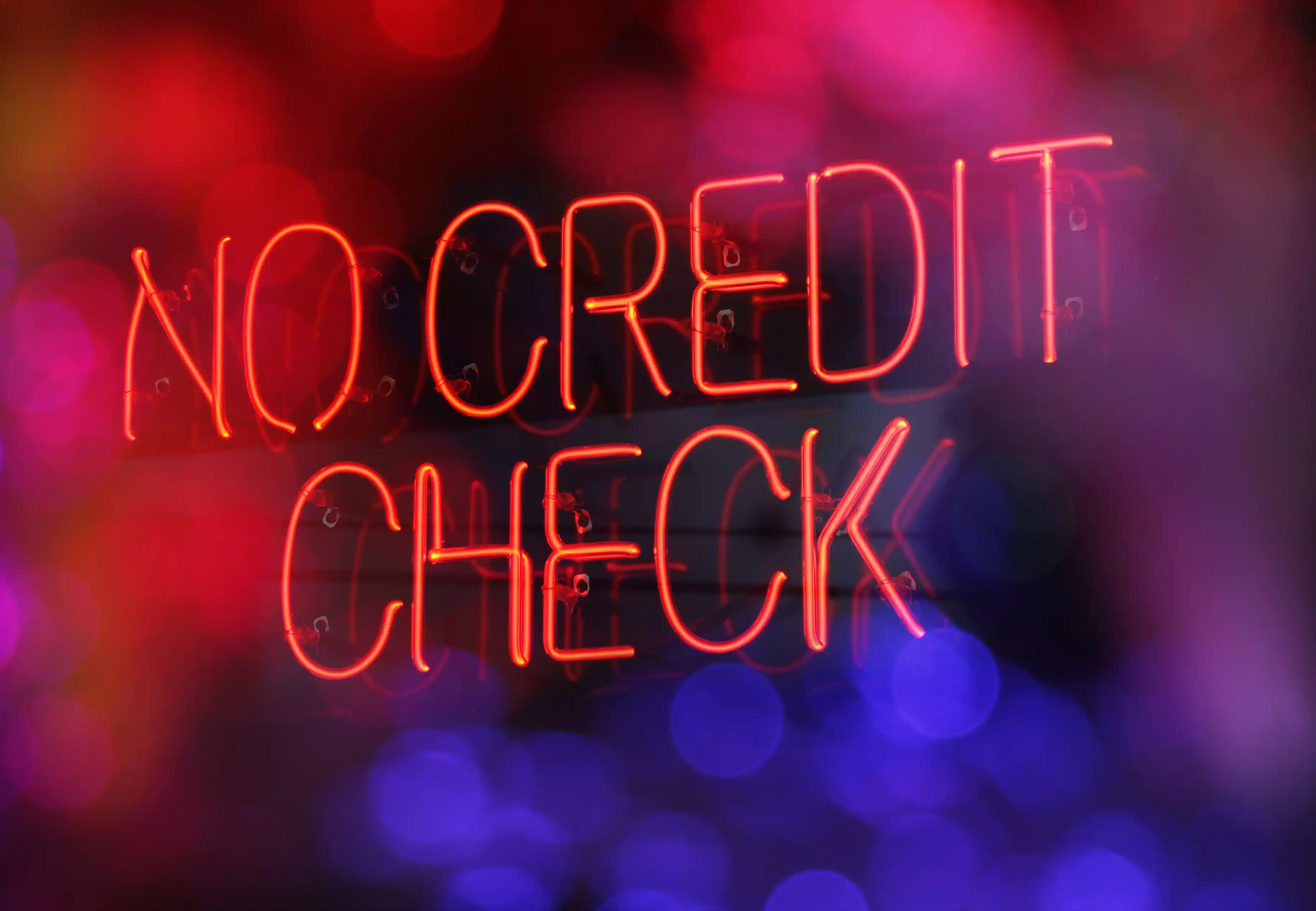As the name suggests, these loans don’t involve a hard pull of your credit file. Thus, they particularly appeal to borrowers with limited credit histories. They’re also popular with borrowers who are in the process of rebuilding damaged credit scores.
Background: Personal Loans and Credit Scores
Standard personal loans issued through banks and financial institutions are usually unsecured. This means the lender won’t require you to offer any collateral in exchange for the loan.
Even so, the lender still wants to protect its interests. Thus, they prefer customers with strong credit scores. Some lenders and credit bureaus use their own internal scales, but the FICO scale serves as a common benchmark.
How FICO Credit Scores Affect Your Loan Options
FICO credit scores range from 300 to 850. The scale rates scores in five categories, which break down as follows:
- Exceptional: 800 to 850.
- Very Good: 740 to 799.
- Good: 670 to 739.
- Fair: 580 to 669.
- Poor: 300 to 579.
To get a standard unsecured loan from a conventional lender, you’ll likely need a FICO score that’s “Good” or higher. However, this excludes two main classes of consumers:
- People who are still establishing their credit histories.
- People who are rebuilding their credit.
This creates a catch-22 paradox. Repaying a loan helps build a positive credit history, and it also boosts flagging credit scores. However, borrowers who don’t qualify for loans in the first place can’t realize these benefits. No credit check loans offer a solution that bridges this gap.
How Are No Credit Check Loans Different from Standard Loans?
No credit check loans don’t involve hard or soft pulls of your credit data. Also, lenders usually process requests relatively quickly. As such, borrowers usually use these loans to cover unexpected expenses and financial emergencies.
Consumers typically choose no credit check loans when they don’t qualify for conventional personal loans. Repayment terms also tend to be stricter than those attached to standard loans.
Types of No Credit Check Loans
The term “no credit check loan” describes any loan that doesn’t require a hard or soft pull of the borrower’s credit data. That said, there are two specific subtypes you should know about: car title loans and payday loans.
Car title loans are available to vehicle owners. They use the car’s title as collateral, giving the lender an ownership claim to the car if the borrower defaults. Payday loans are short-term loans available to employed borrowers with regular salaries or wage earnings. They come with tight repayment schedules and are generally recommended as a last resort, given their high interest rates. You should avoid them unless you are absolutely desperate.
 Shutterstock
ShutterstockInterest Rates, Fees, and Terms
Lenders that offer no credit check loans set their own interest rates, fees, terms, and conditions. These vary, but interest charges are almost always significantly higher than those attached to conventional loans.
Additional fees, such as application fees, origination fees, and prepayment or late payment fees, may also apply. Repayment terms tend to be strict and inflexible, with shorter timeframes.
The Application and Approval Processes
No credit check loans bypass the normal process of reviewing the applicant’s credit file. Thus, lenders usually look at the applicant’s employment history and income for evidence of their ability to repay. They may also consider factors like your length of tenure with your employer and your debt-to-income ratio. If you pursue an option like an auto title loan, documentation requirements will differ. For example, you’ll need to prove ownership of the vehicle and submit a copy of the title.
If you’re approved, you’ll usually find out quickly. Many no credit check lenders offer same-day approval. Some process applications within minutes — or even on the spot. The following rule of thumb generally applies: the looser the application process and the faster the approval, the higher your interest rates and fees will be.
How to Compare Terms and Offers
Many borrowers will qualify for multiple offers, especially through online lenders. Thus, it literally pays to know how to compare loan terms when evaluating your options. In this regard, it’s most important to look at the lifetime cost of the loan.
To determine the lifetime cost of a loan, calculate the total amount of money you’ll have to repay after factoring in interest rates and fees. To this end, the annual percentage rate (APR) is the most accurate measure of total borrowing costs. A loan calculator will also help. Just make sure you read the fine print so you know about all possible fees and penalties that may apply. Factor these in when weighing your choices.
Managing Your No Credit Check Loan
If you’re considering a no credit check loan, you probably have a low credit score or a scant borrowing history. In both cases, it’s vitally important to manage your loan correctly. Otherwise, you risk further damage to your financial standing.
First and most importantly, never take out a loan you don’t need or can’t afford to repay on time. If you have the financial stability to safely borrow money, use budgeting tools to plan your repayment schedule. Do everything you can to make payments on time, as missing even a single payment can trigger fees and penalties.
Advantages of No Credit Check Loans
The main advantage of no credit check loans is their accessibility. You don’t need an extensive credit history or a strong credit score to qualify. They offer an avenue to build a positive credit history and rebuild a damaged credit profile.
Another benefit is their easy availability. No credit check loans are relatively quick and easy to get. This makes them worth considering if you’re in a financial bind with few options to cover an emergency expense.
Drawbacks of No Credit Check Loans
Despite their advantages, no credit check loans come with considerable drawbacks. Compared to standard personal loans, their interest rates tend to be very high. This increases their lifetime costs, making them a more expensive option.
Many personal finance experts believe no credit check loans create increased risk for borrowers. Their high rates and fees can leave consumers trapped in debt cycles, which increase the risk of default. If you pledge collateral such as your car, you could lose it. You could also further damage a low credit score, making it harder to qualify for less costly options in the future.
 Shutterstock
ShutterstockIs a No Credit Check Loan Right for You?
No credit check loans tend to carry high interest rates and fees. As such, they’re generally recommended only to borrowers who don’t qualify for conventional personal loans.
If you have a credit score in the “Good” range or higher, you’ll have less expensive options available. No credit check loans are best used as a last resort for consumers with few or no other borrowing avenues.
Alternatives to No Credit Check Loans
If you need money but you’re balking at the costs associated with no credit check loans, there are alternatives. Payday alternative loans (PALs) are an excellent example. Available through federal credit unions, PALs offer quick access to limited loan amounts. These loans come with caps on application fees and other terms advantageous to borrowers. The downside is that you’ll need to be a credit union member for at least one month to qualify.
Planning ahead can also help you avoid the need to take out expensive short-term loans. Consider joining a lending circle, or hit up a trusted friend or family member if you’re in dire need of help.

